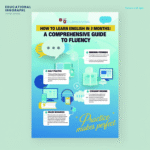Studying abroad as an international student is an enriching experience, offering opportunities for personal growth, cultural immersion, and academic excellence. However, the financial challenges of living in a foreign country can be daunting. From tuition fees to daily living expenses, saving money as an international student requires strategic planning, resourcefulness, and discipline. This guide provides detailed, actionable strategies to help international students manage their finances effectively, reduce costs, and thrive financially while pursuing their education abroad.
- Understanding the Financial Challenges of International Students
- Creating a Budget for Financial Success
- Reducing Tuition and Academic Costs
- Apply for Scholarships and Grants
- Consider Community Colleges or Affordable Institutions
- Utilize Open Educational Resources (OER)
- Take Advantage of Student Discounts
- Saving on Accommodation Costs
- Cutting Food and Grocery Expenses
- Cook at Home
- Shop Smart at Grocery Stores
- Take Advantage of Student Discounts
- Explore Community Resources
- Transportation Savings for International Students
- Use Public Transportation
- Consider Biking or Walking
- Carpooling and Ride-Sharing
- Avoid Unnecessary Travel
- Maximizing Income as an International Student
- Managing Health and Insurance Costs
- Understand Health Insurance Requirements
- Practice Preventive Healthcare
- Emergency Fund for Medical Costs
- Leveraging Technology for Savings
- Cultural and Social Savings Strategies
- Long-Term Financial Planning
- Recommendations and Suggestions
- Frequently Asked Questions (FAQs)
Understanding the Financial Challenges of International Students
International students often face unique financial hurdles that domestic students may not encounter. These include higher tuition fees, currency exchange rate fluctuations, visa-related costs, and limited access to local financial aid. Additionally, many international students are restricted from working off-campus or have limited work hours, making saving money a critical skill. Understanding these challenges is the first step toward creating a sustainable financial plan.
-
High Tuition Fees: International students typically pay higher tuition rates than domestic students, often without access to scholarships or grants reserved for locals.
-
Living Expenses: Costs for accommodation, food, transportation, and utilities can vary significantly depending on the country and city.
-
Currency Exchange Rates: Fluctuations in exchange rates can impact the affordability of expenses when converting money from a home currency.
-
Limited Work Opportunities: Many countries impose restrictions on international students’ ability to work, limiting income potential.
-
Unexpected Costs: Emergency expenses, such as medical bills or travel costs, can strain budgets if not planned for.
By acknowledging these challenges, we can explore practical ways to save money while maintaining a high quality of life.
Creating a Budget for Financial Success
A well-structured budget is the cornerstone of saving money as an international student. It provides clarity on income, expenses, and savings goals, helping students prioritize spending and avoid financial pitfalls.
Steps to Build an Effective Budget
-
Assess Income Sources: Identify all sources of income, such as scholarships, family support, part-time work (if permitted), or savings. Be realistic about how much money is available each month.
-
Track Expenses: Categorize expenses into fixed (rent, tuition, insurance) and variable (food, entertainment, transportation) costs. Use apps like Mint, YNAB, or PocketGuard to monitor spending.
-
Set Savings Goals: Allocate a portion of income to savings, even if small, to build an emergency fund or cover future expenses.
-
Prioritize Needs Over Wants: Focus on essential expenses like rent and groceries before spending on non-essentials like dining out or luxury items.
-
Review and Adjust Monthly: Revisit the budget monthly to account for changes in income, expenses, or financial goals.
Budgeting Tools and Apps
Technology can simplify budgeting. Consider these tools:
-
YNAB (You Need A Budget): Helps allocate every dollar to a specific purpose, promoting disciplined spending.
-
Mint: Tracks spending and categorizes expenses automatically, offering insights into spending habits.
-
PocketGuard: Shows how much disposable income is available after accounting for bills and savings goals.
-
Google Sheets: Create a custom budget spreadsheet for free, tailored to specific needs.
By consistently tracking and adjusting the budget, international students can gain control over their finances and identify opportunities for saving money.
Reducing Tuition and Academic Costs
Tuition is often the largest expense for international students. While it may seem fixed, there are strategies to reduce or offset these costs.
Apply for Scholarships and Grants
Many universities offer scholarships specifically for international students. These may be merit-based, need-based, or country-specific.
-
Research Early: Check university websites, government portals, and organizations like DAAD (Germany), Chevening (UK), or Fulbright (USA) for scholarship opportunities.
-
Tailor Applications: Highlight academic achievements, leadership skills, and financial need in scholarship applications.
-
Apply for Multiple Awards: Increase chances by applying to multiple scholarships, even smaller ones that can add up.
Consider Community Colleges or Affordable Institutions
In countries like the United States, starting at a community college can significantly reduce tuition costs. Many community colleges offer transfer programs to four-year universities, allowing students to complete the first two years at a lower cost.
-
Lower Tuition: Community colleges charge lower fees than universities, often by 50% or more.
-
Transfer Agreements: Many have agreements with universities, ensuring credits transfer seamlessly.
-
Quality Education: Community colleges often provide high-quality instruction, especially for foundational courses.
Utilize Open Educational Resources (OER)
Textbooks and course materials can be expensive. Open Educational Resources provide free or low-cost alternatives.
-
OER Commons: Offers free textbooks, lecture notes, and study guides across disciplines.
-
University Libraries: Many universities provide free access to digital textbooks or course materials.
-
Second-Hand Bookstores: Purchase used textbooks or rent them to save money.
Take Advantage of Student Discounts
Many academic institutions and software providers offer discounts for students.
-
Software Discounts: Programs like Microsoft Office, Adobe Creative Cloud, and SPSS often have student pricing.
-
Online Learning Platforms: Sites like Coursera, edX, or Khan Academy offer free or discounted courses to supplement learning.
-
Library Memberships: University libraries may provide access to academic journals, reducing the need for paid subscriptions.
By combining scholarships, affordable institutions, OER, and discounts, international students can significantly lower academic expenses.
Saving on Accommodation Costs
Housing is a major expense for international students. Strategic choices can lead to substantial savings.
Choose Affordable Housing Options
-
On-Campus Housing: Often more affordable than private rentals, especially for first-year students. Includes utilities and proximity to classes.
-
Shared Apartments: Splitting rent with roommates reduces costs. Look for housing near campus to save on transportation.
-
Homestays: Living with a local family can be cost-effective and culturally enriching, often including meals.
-
Subletting: Rent a room or apartment temporarily from another student, often at a lower rate.
Negotiate Rent and Utilities
-
Long-Term Leases: Landlords may offer discounts for signing a 12-month lease instead of a short-term one.
-
Utility Bundles: Combine internet, electricity, and water into a single plan for discounts.
-
Energy Efficiency: Use energy-saving appliances and turn off lights or electronics when not in use to lower utility bills.
Explore Subsidized Housing
Some universities or governments offer subsidized housing for international students.
-
University Housing Grants: Check if the university provides subsidies or low-cost dormitories.
-
Government Programs: Countries like Canada and Australia may have housing support for students in need.
-
Non-Profit Organizations: Some NGOs offer affordable housing options for international students.
By carefully selecting housing and negotiating costs, students can save hundreds of dollars monthly.
Cutting Food and Grocery Expenses
Food is a recurring expense that can be managed with smart strategies.
Cook at Home
Preparing meals at home is significantly cheaper than eating out.
-
Meal Planning: Plan weekly meals to avoid impulse purchases and reduce food waste.
-
Batch Cooking: Cook large portions and store leftovers for multiple meals.
-
Learn Simple Recipes: Master affordable, nutritious recipes like stir-fries, pasta dishes, or rice-based meals.
Shop Smart at Grocery Stores
-
Buy in Bulk: Purchase staples like rice, pasta, or canned goods in bulk to save money.
-
Choose Store Brands: Opt for generic brands, which are often cheaper than name brands but similar in quality.
-
Use Loyalty Programs: Sign up for grocery store loyalty cards for discounts and rewards.
-
Shop Seasonally: Buy fruits and vegetables in season for lower prices and better quality.
Take Advantage of Student Discounts
Many restaurants and grocery stores offer student discounts.
-
Student ID: Always carry a student ID to access discounts at local eateries or cafes.
-
Meal Voucher Programs: Some universities partner with local businesses to offer discounted meal plans.
-
Food Delivery Apps: Apps like Uber Eats or DoorDash may offer student promotions, though use sparingly to avoid high delivery fees.
Explore Community Resources
-
Food Banks: Many universities and communities have food banks for students facing financial hardship.
-
Cultural Associations: Some organizations provide free or low-cost meals during cultural events.
-
Campus Events: Attend university events that offer free food, such as orientations or club meetings.
By cooking at home, shopping strategically, and leveraging discounts, students can significantly reduce food expenses.
Transportation Savings for International Students
Transportation costs can add up, especially in large cities. Here’s how to minimize them.
Use Public Transportation
Public transit is often the most cost-effective option.
-
Student Passes: Many cities offer discounted monthly or semester passes for students.
-
Buses and Trains: Cheaper than taxis or ride-sharing services for daily commutes.
-
Plan Routes: Use apps like Google Maps or Citymapper to find the cheapest and fastest routes.
Consider Biking or Walking
-
Biking: Purchase a used bike or use bike-sharing programs for short commutes.
-
Walking: Free and healthy, ideal for nearby destinations.
-
Bike Maintenance: Learn basic bike repairs to avoid costly shop visits.
Carpooling and Ride-Sharing
-
Carpooling: Share rides with classmates to split fuel costs.
-
Ride-Sharing Apps: Use apps like BlaBlaCar for long-distance travel at a lower cost than trains or flights.
Avoid Unnecessary Travel
-
Limit International Trips: Traveling home during breaks can be expensive. Consider staying in the host country during shorter breaks.
-
Book Early: For necessary travel, book flights or train tickets well in advance to secure lower rates.
-
Use Budget Airlines: Airlines like Ryanair, EasyJet, or Spirit offer affordable fares for students.
By prioritizing public transit, biking, and strategic travel planning, students can keep transportation costs low.
Maximizing Income as an International Student
While work restrictions may apply, there are ways to earn extra income legally.
On-Campus Jobs
Many countries allow international students to work on-campus without additional visas.
-
Library or Administrative Roles: Offer flexible hours and proximity to classes.
-
Teaching or Research Assistantships: Often come with tuition waivers or stipends.
-
Campus Cafes or Bookstores: Provide steady income and sometimes free meals or discounts.
Freelancing and Online Work
-
Freelance Platforms: Sites like Upwork, Fiverr, or Freelancer allow students to offer skills like writing, graphic design, or tutoring.
-
Online Tutoring: Teach languages or academic subjects via platforms like Preply or Tutor.com.
-
Content Creation: Start a blog, YouTube channel, or social media account to monetize skills or experiences.
Scholarships and Paid Internships
-
Paid Internships: Look for internships related to your field of study, which may offer stipends or course credit.
-
Work-Study Programs: Some universities offer work-study opportunities that align with academic schedules.
Sell Unused Items
-
Textbooks: Sell old textbooks to bookstores or online platforms like BookFinder.
-
Clothing or Electronics: Use platforms like eBay, Depop, or local classifieds to sell items no longer needed.
By exploring legal work options and creative income streams, students can supplement their finances.
Managing Health and Insurance Costs
Healthcare can be a significant expense, especially in countries with privatized systems.
Understand Health Insurance Requirements
-
Mandatory Insurance: Many countries require international students to have health insurance. Check university or visa requirements.
-
Compare Plans: Research private insurance options or university-provided plans for the best coverage at the lowest cost.
-
Use Campus Health Services: Many universities offer free or low-cost health clinics for students.
Practice Preventive Healthcare
-
Healthy Lifestyle: Eat nutritious meals, exercise regularly, and get enough sleep to avoid costly medical issues.
-
Free Vaccinations: Take advantage of free or subsidized vaccinations offered by universities or public health programs.
-
Mental Health Resources: Use free counseling services provided by universities to manage stress or mental health challenges.
Emergency Fund for Medical Costs
Set aside a small emergency fund for unexpected medical expenses, such as dental care or specialist visits not covered by insurance.
Leveraging Technology for Savings
Technology can streamline efforts to save money.
Use Cashback and Reward Apps
-
Rakuten: Earn cashback on online purchases, including textbooks or electronics.
-
Honey: Automatically applies coupons at checkout for online shopping.
-
Ibotta: Offers cashback on grocery purchases.
Free Communication Tools
-
WhatsApp or Skype: Use free messaging and calling apps to stay in touch with family without international phone bills.
-
University Email: Use free university email accounts for academic communication.
Subscription Management
-
Cancel Unused Subscriptions: Regularly review subscriptions like Netflix or Spotify to eliminate unnecessary expenses.
-
Share Subscriptions: Split costs with roommates or friends for services like streaming platforms.
-
Student Discounts: Use student discounts for services like Spotify, Amazon Prime, or Apple Music.
By leveraging technology, students can save on everyday expenses and stay connected affordably.
Cultural and Social Savings Strategies
Participating in cultural and social activities doesn’t have to be expensive.
Free or Low-Cost Activities
-
University Clubs: Join student organizations that host free events, workshops, or trips.
-
Local Festivals: Attend free cultural festivals or community events to experience the host country’s culture.
-
Museums and Galleries: Many offer free admission days for students or residents.
Volunteer Opportunities
-
Volunteer for Events: Gain free entry to concerts, festivals, or conferences by volunteering.
-
Community Service: Build connections and skills while contributing to the local community.
Budget-Friendly Travel
-
Hostels: Stay in affordable hostels when traveling to nearby cities.
-
Group Travel: Organize trips with friends to split accommodation and transportation costs.
-
Student Travel Agencies: Use agencies like STA Travel for discounted student fares.
By seeking out free or low-cost activities, students can enjoy their time abroad without overspending.
Long-Term Financial Planning
Saving money as an international student extends beyond immediate expenses. Long-term planning ensures financial stability throughout the academic journey and beyond.
Build an Emergency Fund
Aim to save at least 3-6 months’ worth of living expenses to cover unexpected costs, such as medical emergencies or travel disruptions.
Invest in Financial Education
-
Online Courses: Take free courses on platforms like Coursera or Khan Academy to learn about personal finance.
-
Books: Read books like “The Millionaire Next Door” or “Rich Dad Poor Dad” for insights on money management.
-
Financial Advisors: Some universities offer free financial counseling for students.
Plan for Post-Graduation
-
Job Search Early: Research job opportunities in the host country or home country before graduating.
-
Visa Options: Explore post-study work visas, such as the Optional Practical Training (OPT) in the USA or the Post-Study Work Visa in the UK.
-
Save for Relocation: Set aside funds for moving expenses or repatriation after completing studies.
By planning for the long term, students can transition smoothly from academic life to professional life.
Recommendations and Suggestions
To maximize savings as an international student, we recommend:
-
Create and stick to a detailed budget using tools like YNAB or Mint.
-
Apply for every scholarship and grant available, even smaller ones.
-
Choose affordable housing options like shared apartments or on-campus dorms.
-
Cook meals at home and shop smart with loyalty programs and seasonal produce.
-
Use public transportation and student discounts to reduce commuting costs.
-
Explore legal work options, such as on-campus jobs or freelancing.
-
Build an emergency fund to cover unexpected expenses.
-
Leverage technology, such as cashback apps and free communication tools.
-
Participate in free or low-cost cultural activities to enrich the experience.
-
Plan for the future by saving for post-graduation expenses and learning about personal finance.
Frequently Asked Questions (FAQs)
-
How can international students create a budget?Assess income, track expenses, set savings goals, and use budgeting apps like Mint or YNAB.
-
What scholarships are available for international students?Check university websites, government programs like DAAD or Fulbright, and private organizations for scholarships.
-
How can I save on tuition fees?Apply for scholarships, consider community colleges, use OER, and leverage student discounts.
-
What are affordable housing options for international students?On-campus dorms, shared apartments, homestays, and subsidized housing are cost-effective choices.
-
How can I reduce food expenses?Cook at home, shop in bulk, use store brands, and take advantage of student discounts.
-
What are the best transportation options for students?Use public transit with student passes, bike, walk, or carpool to save money.
-
Can international students work while studying?Many countries allow on-campus work or limited off-campus hours. Check visa regulations.
-
How can I earn extra income legally?Explore on-campus jobs, freelancing, tutoring, or selling unused items.
-
How do I manage healthcare costs abroad?Understand insurance requirements, use campus health services, and practice preventive care.
-
What apps can help me save money?Use Rakuten, Honey, Ibotta, and budgeting apps like Mint or YNAB.
-
How can I stay connected with family affordably?Use free apps like WhatsApp or Skype for international communication.
-
What are free activities for international students?Join university clubs, attend free festivals, or volunteer for event access.
-
How can I travel on a budget?Stay in hostels, book early, use budget airlines, and travel in groups.
-
Why is an emergency fund important?It covers unexpected expenses like medical bills or travel disruptions, ensuring financial stability.
-
How can I prepare financially for post-graduation?Save for relocation, research job opportunities, and explore post-study work visas.

















